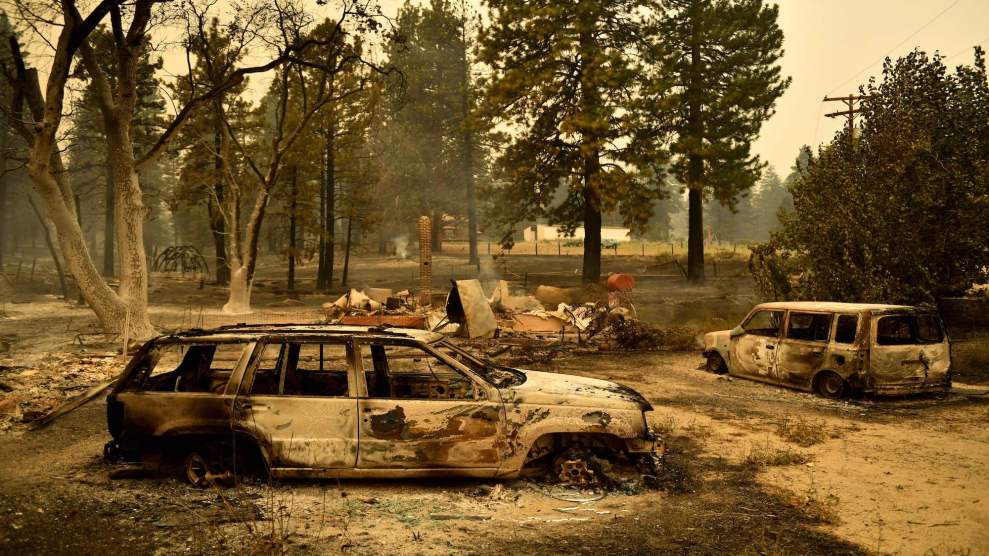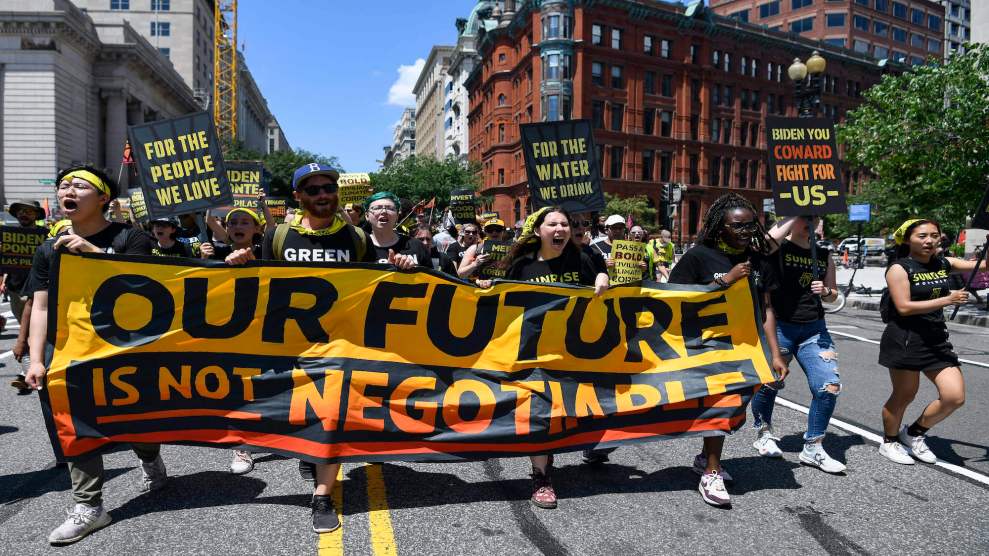
Getty Images
This story was originally published by Canada’s National Observer and is reproduced here as part of the Climate Desk collaboration.
What runs through your mind when you’re deciding which toilet paper to buy? Sale price, roll size, pitiful single-ply or luxurious triple? Climate change might not make your list of considerations, but it should.
According to the Natural Resources Defense Council (NRDC), the toilet paper industry is among the most egregious climate offenders in Canada.
In its latest report on tissue products, the NRDC evaluated the sustainability of 44 toilet paper brands, giving each product a score from A+ to F. Who Gives a Crap, 100% Recycled and Green Forest were ranked highest, while Angel Soft and Charmin brought up the rear with critically low scores.
“The companies with the largest market shares have the power to make a significant difference for the future of our world’s forests,” the authors wrote. “Instead, they largely adhere to decades-old tissue formulas that have taken a devastating toll on forests.”
Charmin’s abysmal rating draws particular ire. Despite a 2020 resolution by Procter and Gamble shareholders (the manufacturer of Charmin) to determine how it could eliminate deforestation from its supply chains, the company actually increased its consumption of Canadian forest fiber this past year.
And not just any Canadian fiber: P&G relies on climate-critical forests like the Canadian boreal to produce its products. The Canadian boreal is considered a vital global carbon sink, representing a staggering 25 percent of the planet’s remaining intact forest. It contains twice as much carbon as the world’s oil reserves.
However, excessive logging and other human interventions have seen a steady collapse of this precious resource, to the point where these forests now emit more CO2 into the atmosphere than they absorb.
The logging industry alone accounts for five tonnes of CO2 emissions per Canadian per year — double the emissions from all of our passenger cars and trucks.
Much of the demand for this logged fiber goes towards making tissue paper. According to the NRDC, the average American household consumes an average of three rolls of toilet paper a week, or 100 pounds of toilet paper a year.
The Canadian boreal is a major source for northern bleached softwood kraft (NBSK) pulp, the preferred softwood pulp used for tissue products in the US.
“As the climate crisis worsens, the tissue industry’s continued reliance on a devastating ‘tree to toilet pipeline’ has become only more untenable,” said Shelley Vinyard, NRDC’s boreal corporate campaign manager. “Major corporations like P&G must start responding to the pressure and accept their own, much larger, role in the climate catastrophe.”
Alternatives to the “tree-to-toilet” pipeline are highlighted in the report, such as bamboo-based and recycled products. There’s a bevy of choices, if you’re willing to look for them.
“Finally, both large and small companies are offering tissue products that don’t flush our forests down the drain,” said Vinyard. “Now it’s time for the laggards like P&G to catch up to the quickly shifting market trends.”















